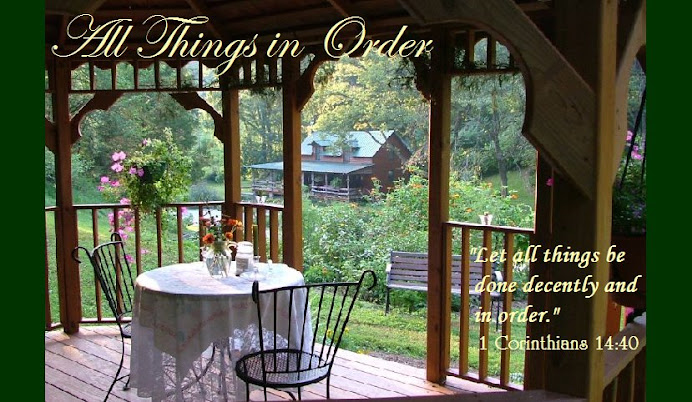Devotion: Taking the Land a.k.a. Little-by-Little
You may say to yourselves, "These nations are stronger than we are. How can we drive them out?" But do not be afraid of them; remember well what the LORD your God did to Pharaoh and to all Egypt. You saw with your own eyes the great trials, the miraculous signs and wonders, the mighty hand and outstretched arm, with which the LORD your God brought you out. The LORD your God will do the same to all the peoples you now fear. Moreover, the LORD your God will send the hornet among them until even the survivors who hide from you have perished. Do not be terrified by them, for the LORD your God, who is among you, is a great and awesome God. The LORD your God will drive out those nations before you, little by little. You will not be allowed to eliminate them all at once, or the wild animals will multiply around you. But the LORD your God will deliver them over to you, throwing them into great confusion until they are destroyed.
Deuteronomy 7:17-23 (NIV)
In Greek mythology, Sisyphus was condemned to push a huge stone to the top of a hill. With great physical exertion he pushed all day until he got the stone all the way to the top. But no sooner had he reached the top than the stone rolled all the way back down to the bottom. Thus, his struggle is recognized as an “uphill battle."
sooner had he reached the top than the stone rolled all the way back down to the bottom. Thus, his struggle is recognized as an “uphill battle."
Organizing may seem that way for many. You spend an entire day or maybe several exhausting days organizing what may have taken weeks or years to create. At the end of your marathon, you are spent and weak from your efforts. But what happens next? You “release” the stone and the next thing you know things are once again in disarray. It can be very discouraging to realize how long it takes to deal with clutter and how long it takes for clutter to collect again.
This tendency is very reminiscent of Sisyphus. You work and work with intensity, and once you release the bolder, your tendency is to relax and let things go back to the familiar, with no plan in place for maintenance. Habits take time to reform in our brain, and when we do too much too quickly, not only do we get exhausted and burn out for the next several days, but in those next several days we undo all that we have accomplished. Even though you've had great results in a short time, you have to remember that keeping things looking that good is a matter of building daily habits--habits of keeping things organized.
God promises that He will “drive out” with His mighty hands that which is keeping disorder in your life. But this works only little-by-little, in the taking of the land or the taking of the room! Building habits one at a time, little-by-little, will insure you of a great success and will allow you to rule over your possessions instead of being ruled by them.
The magic “key” to continuing with your organizing efforts is to build into your system a maintenance schedule. Finding someone to help keep you accountable until the maintenance is routine, and remembering to schedule the end of the day de-cluttering session will insure you that you will not find yourself in the same original circumstance as before.
Organizing Principles:
1. Never buy more than what you need.
2. When starting the de-cluttering process...every time you buy something new, decide what you have that is like it and train yourself to dispose of 3 articles that are like the new one coming in.
3. Begin de-cluttering with the Mt. Vernon Method. Choose one spot in the room and keep your focus on that area until everything is completed. Then move to either the left or the right and continue to sweep the entire room in a systematic process. Distractions occur when we zigzag in our de-cluttering because we feel it necessary to put things away, and in doing so, we forget where we were. Have a basket that accumulates everything that is to go someplace else and at the end of the session, take those items and put them away.
4. Build one habit at a time. Trying to take on 12 new habits at a time is a sure fire way to become overwhelmed. Don’t let your perfectionism (the desire to do it all at once) ruin such fantastic efforts.
Yes, you may backslide once in a while. That’s normal. However, if you have taken measures to “keep the wild beasts away” getting organized again will only take half the time and effort as your original endeavor.
A quote from a dear one:
“Please remember that your home didn't get into this shape at the rate of one room per day, and it's not going to get out of this shape at the rate of one room per day either. Sure, you can continue to purge at that rate, but when you're done, you won't even remember what you got rid of, where you put the things you kept, or even what you kept. Trust me, I know of what I speak. I purged my sewing room very quickly within the past few months, and now there are things that I either can't find, or wish I had never gotten rid of. Sure I had good reason to get rid of a lot of stuff, but there are still items that I now wish I'd kept, because I've gone looking for them and have come to the conclusion that they were among the purged items.”
Prayer,
Lord, thank you for opening my eyes to Your promise that You will drive out the clutter beasts from my life. What I was missing was that You want me to build new habits, little-by-little. Your son Jesus said, “…my yoke is easy.” I never understood why I spent countless hours taking the land of my room, only to be discouraged because the wild beasts came back in and devoured all I had done. I now know to take it easy, bit-by-bit, and to create and maintain a schedule to keep it that way.
~Eileen Koff, CPO












